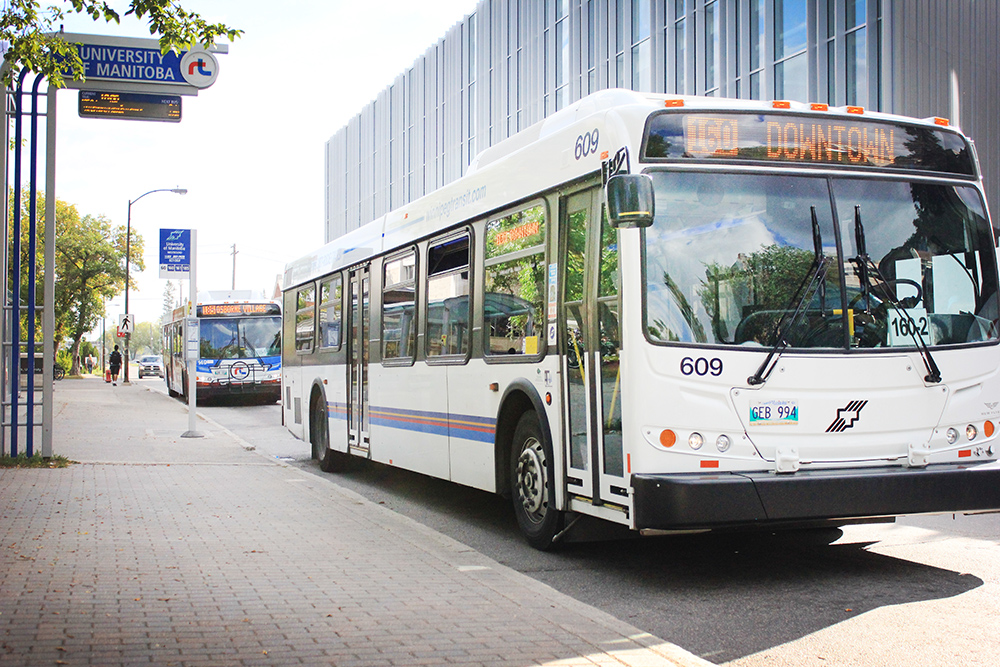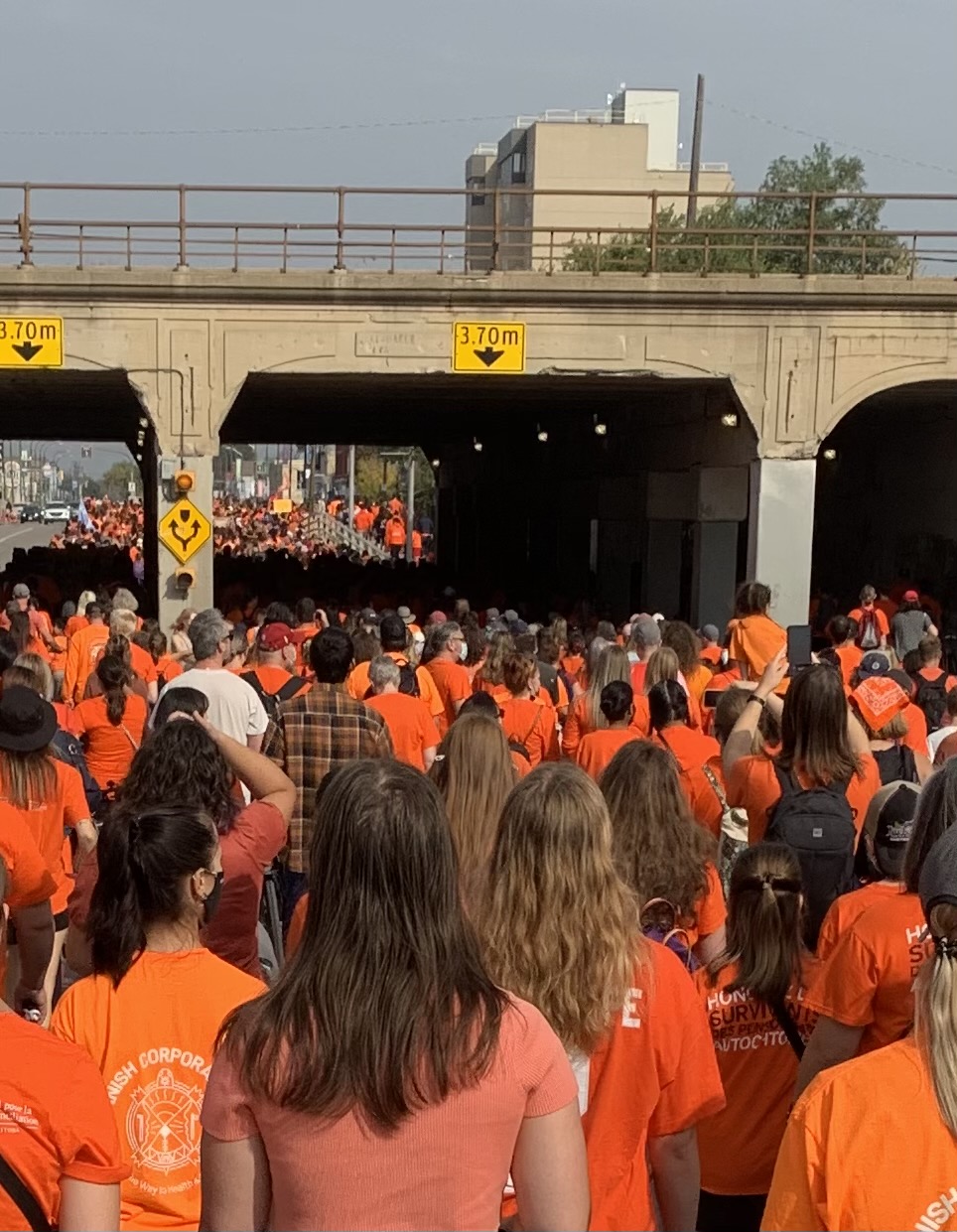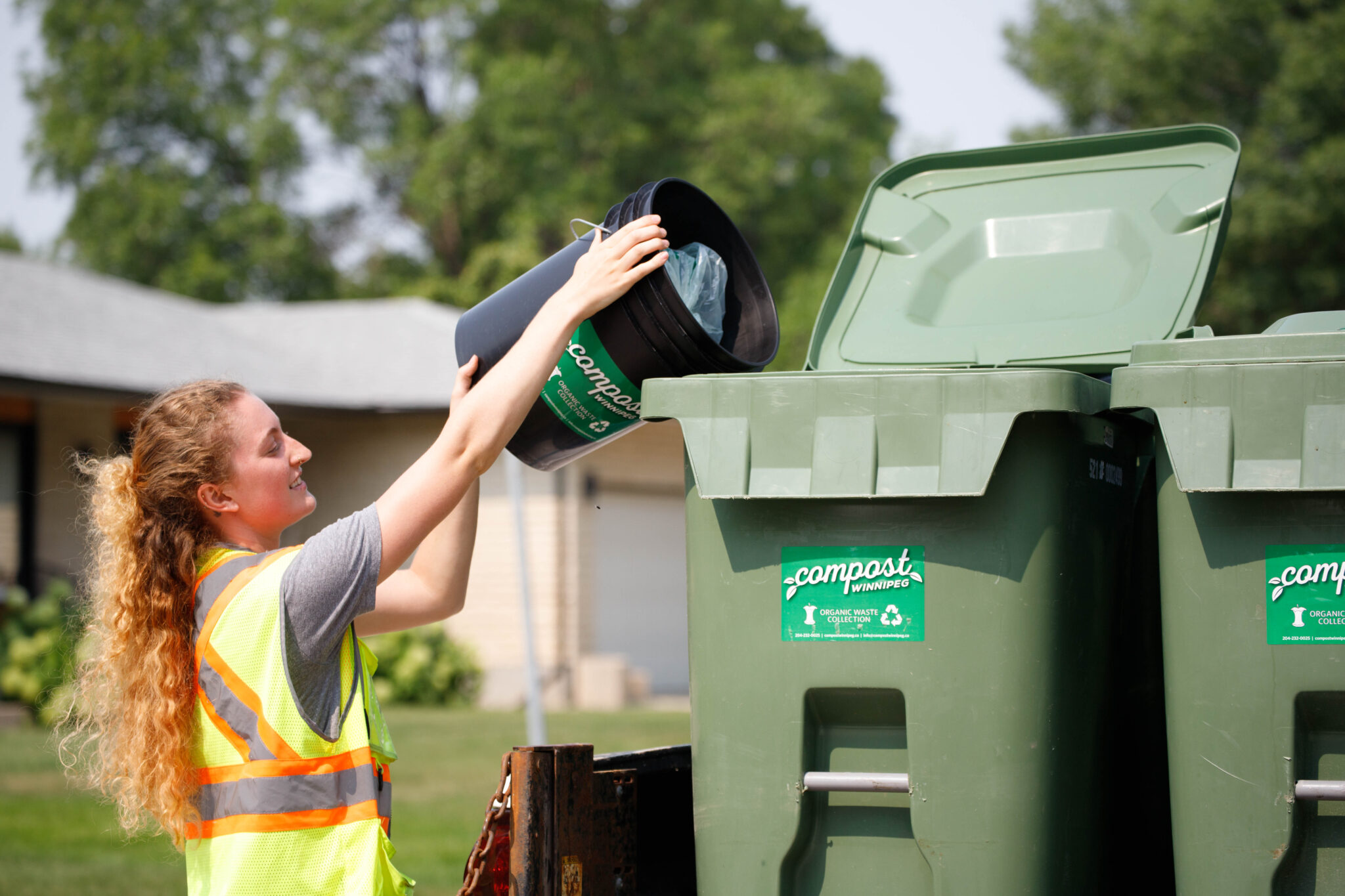For several years, we have been sending Santa our wishlist for Manitoba. Well, we’re back at it for 2023! Here are a few of our wishes for the year to come:
1) Make Vision Zero top priority
The Province’s Road Safety Plan that called for a move towards zero traffic fatalities expired in 2020. We need a renewed call to action. With at least 21 fatalities on our roads in 2022, 12 of which were pedestrians and cyclists, this needs to be at the forefront of our decision making when it comes to policy and infrastructure. We owe it to our citizens to keep them safe, regardless of which mode of transportation they choose in the city.
2) Implement the Winnipeg Transit Master Plan
Now that we have a new Winnipeg Transit Master Plan, which includes a complete overhaul of the network and approach to transit planning, we need to start working on implementing it. We’re in the final year of our four-year budget cycle, so this is an ideal time to budget appropriately for the future of transit. Let’s get this bus moving faster and more often!

3) Prioritize pedestrian & cycling infrastructure
While we saw an exciting boost of activity and desire for temporary infrastructure at the start of the COVID-19 pandemic with the Open Streets program, sadly this momentum has faded as we go back to the ‘same old, same old’. We have a long way to go before people of all ages and abilities feel safe walking and wheeling to get around in Winnipeg, especially in the winter. The final phase of public engagement for the Transportation Master Plan 2050 has been postponed until early 2023, so there’s still time to have your say and speak up for change.
4) Address violence against Indigenous women, girls and 2SLGBTQQIA people
This year brought MMIWG2S into the harsh spotlight in Manitoba. No one could escape the glare unless they deliberately covered their eyes and ears, and closed their heart. We can learn more here and, as Niigaan Sinclair guided us, say their names and remember them. We call on government and decision makers to take immediate, purposeful action to ensure that this legacy of violence does not continue.

5) Demonstrate meaningful action on the Truth & Reconciliation Commission of Canada’s 94 Calls to Action
As noted by the Yellowhead Institute, December 2022 marks seven years since the Truth and Reconciliation Commission of Canada released its six-volume Final Report and 94 Calls to Action. In their most recent report, Calls to Action Accountability: A 2022 Status Update on Reconciliation, the Yellowhead Institute noted only two calls to action were completed this year bringing the total to 13 completed actions. At this glacial pace, it will take another 42 years, or until 2065, to complete the remainder. This is wrong.
6) Take a regional approach to transportation and provide viable intercommunity transport
You might be wondering why we keep coming back to transportation. Well… transportation is the biggest contributor of GHG emissions in Manitoba and the bulk of that is made up by personal transportation. That’s all of us. How we get around and between our communities is key.
With Greyhound long gone and limited private options available, how can Manitobans get between communities? Sadly, the idea that the private sector would step up and fill the gap has not happened. It’s a hard service to make viable for any provider, which is why it was subsidized in the past. It is another highlight of the transportation inequities and injustices faced by any Manitoban unable to drive or own a car, or simply wanting a sustainable option. To help address this barrier, Green Action Centre continues to provide GoManitoba, an online ridematching tool that helps users find carpool matches or mentors to assist with getting around by bike or transit for the first time.
7) Implement curbside compost collection and increased opportunities for multi-family composting
Ah, the never ending saga of curbside composting pickup. Another perennial favourite on our wishlist, it remains a future dream in Winnipeg but a wonderful reality in other Manitoba municipalities such as Brandon and Morden. Did you know that Winnipeg is the largest city in Canada without a city-run food waste collection program? On the bright side, a pilot program launched in Winnipeg in 2020 with approximately 4,000 households in five neighbourhoods. The pilot has ended and the report will be coming soon in early 2023, after which results will be analyzed and consideration given whether to roll it out city-wide.
Green Action Centre inadvertently helped fill the gap after the City of Winnipeg reneged on its initial green cart program in 2014. Our social enterprise, Compost Winnipeg, was initially focused on organic waste pickup from commercial or business clients but stepped up to absorb a number of new residential clients (in both single dwelling homes and apartments or condos). The growth for residential pickup has been phenomenal ever since. Glad we were there at the right time and the right place!

8) Ban organics in landfills
Yup, you guessed it, another perennial favourite on our wishlist but this one is for the Province of Manitoba. While residential curbside composting at the municipal level is a key structural element, motivation is needed to reduce the amount of organic waste in our landfills. At present, compostable materials make up about 40% of total waste in landfills and result in the creation of methane, a greenhouse gas that is 25 times more potent than carbon dioxide.
In 2021, the Province released a report on the Manitoba Waste Diversion and Recycling Framework Review. The review notes that addressing organic waste at landfills would have the greatest impact on reducing GHG emissions.
9) Minimize food waste
Here’s one for all of us! Organic waste, both avoidable and unavoidable, makes up about 30% of residential trash. Food loss and waste is a significant contributor to commercial and industrial waste streams, as well. We’re big fans of composting, but even better is stopping the waste at the source and preventing avoidable waste. At the household level, every family can benefit from this – it is estimated that $1300 a year of food ends up in the trash per household. What can you do to take action on this today? Try a personal waste audit or reduce your waste with a pantry challenge.
10) Implement a ban on single-use plastics
Finally, a wish that has come true! Proposed federal regulations on the ban of six types of single-use plastics have been released and have already begun to take effect. Some cities and retailers are getting ahead of the federal regulations by introducing their own bans, such as Red River Co-op switching to reusable bags only, and some food outlets replacing plastic straws with paper versions.

Since 2018, Green Action Centre has partnered with Red River Co-op grocery stores to reduce waste. Through an education and awareness campaign for customers and staff as well as the introduction of a 5-cent fee per bag, Red River Co-op was able to reduce the disposable bags used in their stores by 54%, diverting over 3 million bags from the landfill in just one year. Profits from the bag sales were donated to Green Action Centre’s composting initiatives in 2019, and food waste and plastic reduction efforts in 2020. We were happy to see them eliminate plastic checkout bags from their stores entirely on April 22, 2022!
11) Direct carbon tax revenue to reducing GHG emissions
Since the Province of Manitoba scrapped the carbon tax portion of Manitoba’s Climate and Green Plan in 2018, our wish is that the federal government keeps the backstop in place but also directs funds to green solutions for all Manitobans. We believe carbon revenues should be targeted toward technologies and programs that reduce or mitigate GHG emissions directly or provide alternatives to current practices, while low-income groups and other disadvantaged people in Manitoba should be protected to alleviate the impact of the tax. Learn more in our brief to the Province [pdf].
12) Prioritize shifting transportation modes away from single-occupant vehicles
We’re probably preaching to the choir here, but a key element of reducing GHG emissions is shifting travel modes from driving alone to using public transit (where available), carpooling, cycling or walking for more trips. This is where land use and transportation planning go hand in hand – more compact communities make it possible to get around on foot or by bike while a robust transit network provides a sustainable way to travel further distances. But, to date, our planning has continued to make it easier, more convenient and not much more expensive to drive (if you exclude the cost of buying a vehicle).
A mode shift means we need to prioritize sustainable modes and make them just as (or more) appealing than driving alone. Sadly, the current draft of the Winnipeg Transportation Master Plan 2050 does not prioritize sustainable modes even though it recognizes that we can’t afford to continue building new roads (when we can’t afford to maintain our existing network), and we need to increase the number of trips made by bus, cycling, walking or carpooling to meet our goals as a city. Guess we’re just hoping people will “do the right thing”.

13) Expand cycling education in schools
Ending on a positive note, the Bicycle Education and Skills (BEST) program expanded into two new Winnipeg school divisions in the 2021-22 school year, and we would love to see this continue in the coming years. To do that, the program needs support from the municipal and provincial level. Children and youth that learn how to safely ride a bike on the road grow into adults that are more likely to use a bike to get around. Let’s help grow the next generation of sustainable transportation!
And to all a good night! Green Action Centre wishes all Manitobans a safe and eco-filled 2023, complete with healthy food, healthy transportation, and green living practices. Let’s see what we can make happen this year.




My comment is about composting. I started composting about 3 years ago. This came with some challenges; 1. It was and still is hard to find and buy a proper bin. Ideally two would be needed. 2. If you add too much fruit you will get flies. If everyone composted our fly population would explode. 3. However after much research on composting I have tried to find a balance. It’s not easy to always have brown to balance the green. In conclusion I must say that wherever I used my finished compost my plants never looked better and I have been growing for 30 years. Please make compost bins available. Also the turning rod is nowhere to be found. I use a smaller fork . Education is key ; flies and availability of bins is the problem.
Hi Milena. It’s great to hear that you’ve been composting for the past 30 years! I have a handy tip for you to solve your fruit fly problem. Whenever you add greens (food scraps) to your bin, make sure you put a healthy layer of browns (leaves, shredded paper, straw, sawdust) on top. This does the trick in preventing that cloud of fruit flies flying into your face when you open your bin (not pleasant). If you find there are still fruit flies, then add another layer of browns.
Most hardware stores sell the black plastic compost bins. If you’re looking to build your own wooden bin, here’s a great resource to check out: https://greenactioncentre.ca/reduce-your-waste/compost-bin-options/
Unfortunately, compost aerators are not sold in most stores, but Lee Valley does sell them: https://www.leevalley.com/en-ca/shop/garden/composting/composting-tools/10028-compost-aerating-tool?item=XG401
You can always come by our office to purchase one for $25.
Keep up the good work!
All great, I totally support. If possible please add making XC trails whenever possible, so many unused snow covered areas in big and small parks. Seems like such a tiny task in Comparison with others but important for getting people moving and enjoying winter time.